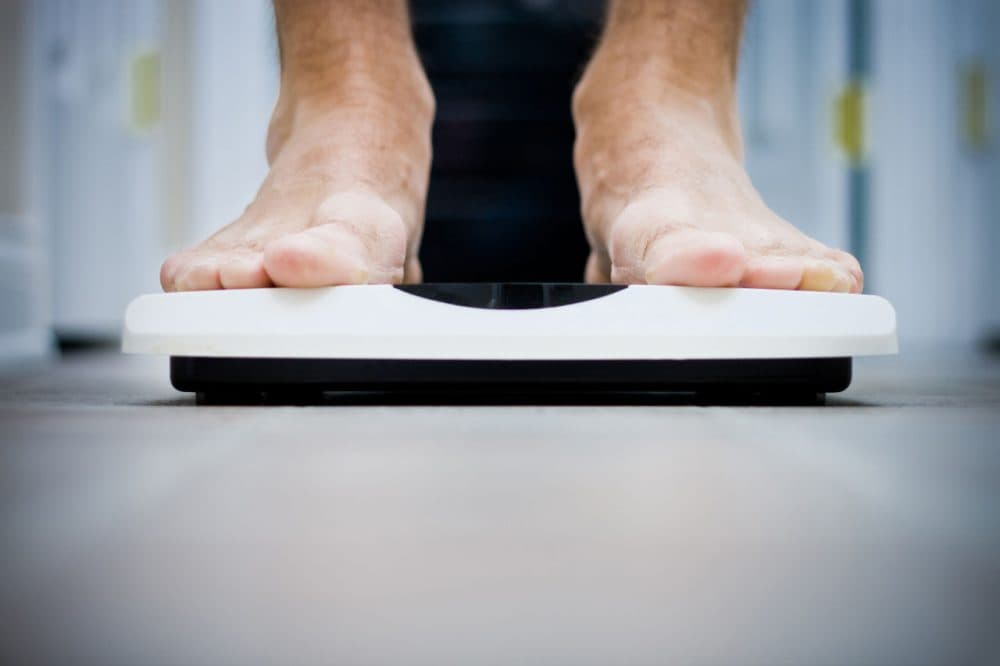Advertisement
Before You Resolve To Lose Weight In 2018, Consider These Reality Checks

Here is my typical year-end calendar:
Dec. 15-27: Overindulge in holiday-season treats.
Dec: 28-30: Behold the resulting bulges with dismay.
Dec. 31: Make a New Year's resolution to lose weight.
And here is my typical new-year calendar:
Jan. 1-3: Diet successfully.
Jan. 4-7: Get hungry and cranky, lose resolve, binge enough to gain back most of the lost weight, give up.
This year will be different.
First, because echoing in my head is one of the many pearls I received from Dr. Eddie Phillips, my co-host on our exercise motivation podcast "The Magic Pill." (If your 2018 resolution is to move more, you could do worse than signing up for free daily email deliveries of "The Magic Pill" here.)
Eddie said something like: "The only changes worth making are those that you can maintain for the rest of your life."
So no hangry-making diet this year. Just an aim to eat less junk and more fruits, vegetables and pulses — forever.
And second, this year will be different because I'm prepping my head for the new year with a diet of information kindly provided by our friends at The Conversation, who curate and edit pieces by academics willing to convert their expertise into articles for the general public.
Some samplings of their food for thought:
• "What Thin People Don't Understand About Dieting"
Using a hypothetical naturally thin person named Nicky, this piece explores the ways that the biological deck can be stacked against heavier people — and how it can seem to the Nicky types that dieting is easy and effective. An excerpt:
Nicky thinks she’s thin because of the way she eats, but actually, genetics play a huge role in making her thin. Nicky gets all the credit though, because people see the way she eats and they can’t see her genes.
Many heavy people wouldn’t be lean like Nicky even if they ate the same foods in the same quantities. Their bodies are able to run on fewer calories than Nicky’s, which sounds like a good thing (and would be great if you found yourself in a famine).
However, it actually means that after eating the same foods and using that energy to run the systems of their body, they have more calories left over to store as fat than Nicky does. So to actually lose weight, they have to eat less food than Nicky. And then, once they’ve been dieting a while, their metabolism changes so that they need to eat even less than that to keep losing weight.
It’s not just Nicky’s genetically given metabolism that makes her think dieting must work. Nicky, as a non-dieter, finds it really easy to ignore that bowl of Hershey’s Kisses on her co-worker’s desk. But for dieters, it’s like those Kisses are jumping up and down saying “Eat me!” Dieting causes neurological changes that make you more likely to notice food than before dieting, and once you notice it, these changes make it hard to stop thinking about it. Nicky might forget those chocolates are there, but dieters won’t.
• "New medical advances marking the end of a long reign for ‘diet wizards’"
This piece, by Emory University radiologist David Prologo, argues that the body's natural resistance to weight loss "can be lessened using medical procedures, by new medications or by increasing one’s exercise capacity to a critical point."
• "Why your doctor may not be able to help you lose weight"
Jennifer Kraschnewski of Penn State asks: We turn to doctors to treat cancer, addiction and high blood pressure. And, they have a lot of training and tools to help us. Why is that not so with obesity?
Next up: A novel idea, but could they bill for that?
• "Why walking with your doctor could be better than talking with your doctor"
And the big picture:
• "Our Fight With Fat: Why Is Obesity Getting Worse?"
Don't let some dribbles of relatively good news about the obesity epidemic fool you: We're fatter than ever, with nearly 40 percent of Americans now obese.
Why are we losing the fight and gaining the fat? This piece runs through the reasons, many of them familiar: food culture, consumerism, long work hours, sedentary lives, portion sizes. Then it explores progress and potential solutions:
Studies show obesity appears to be plateauing in Caucasians, though not in ethnic minorities. But the numbers are already so high, “plateauing” seems more euphemistic than hopeful.
Scientific research has shown that the fixes are not about dieting, however. The solutions are complex and will take time and resources. Patients need more support than they are receiving.
Clearly, our country needs a greater systematic effort in the realms of public health, the government and industry. For starters, our political leaders should make combating obesity a top priority. Our nation faces many challenges, and the obesity epidemic has fallen to the bottom of a long list of health care problems. [...]
As someone who sees this devastating illness every day, I believe that health care insurers need to be more willing to pay upfront to manage obesity before it becomes a much more expensive disease to treat. Given the structure of health insurance now, physicians simply cannot spend the time needed with patients to properly communicate and educate.
Readers, your thoughts? Your resolutions, or lack thereof? Did these pieces affect them?
You can read more health-related articles at The Conversation here.
